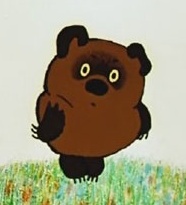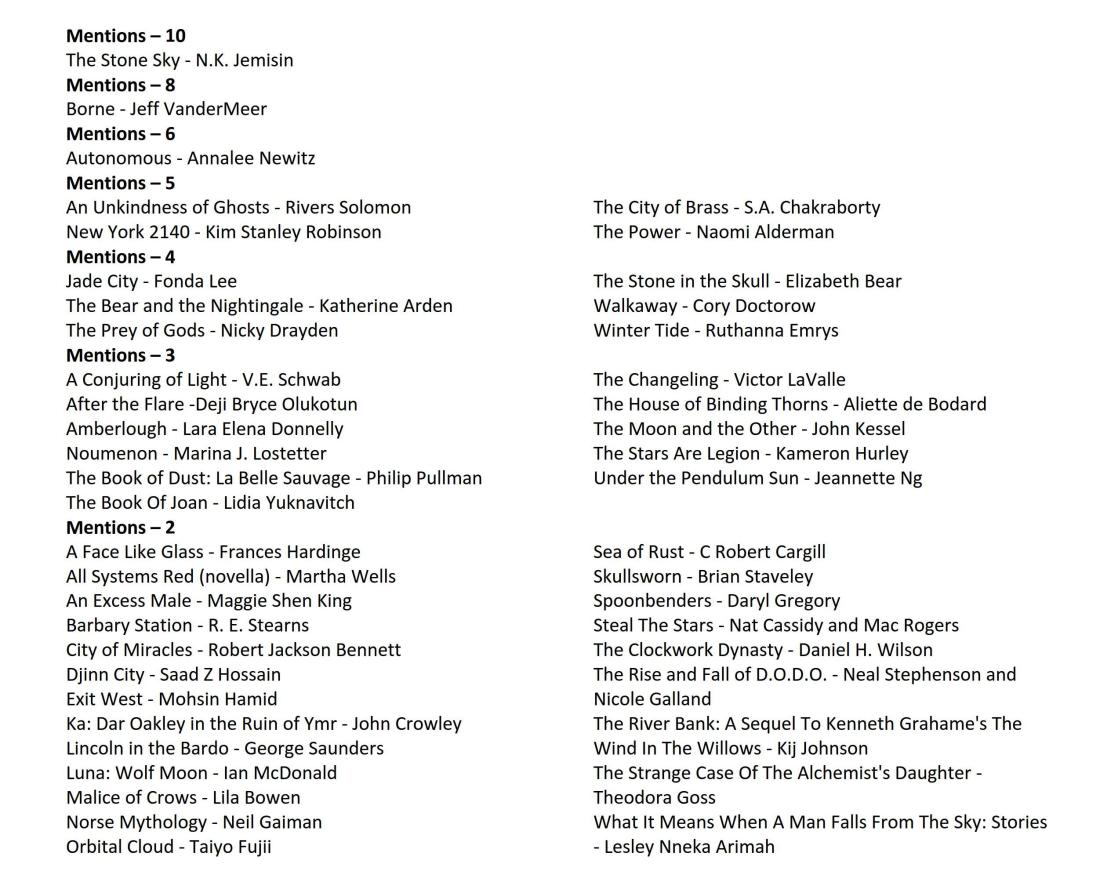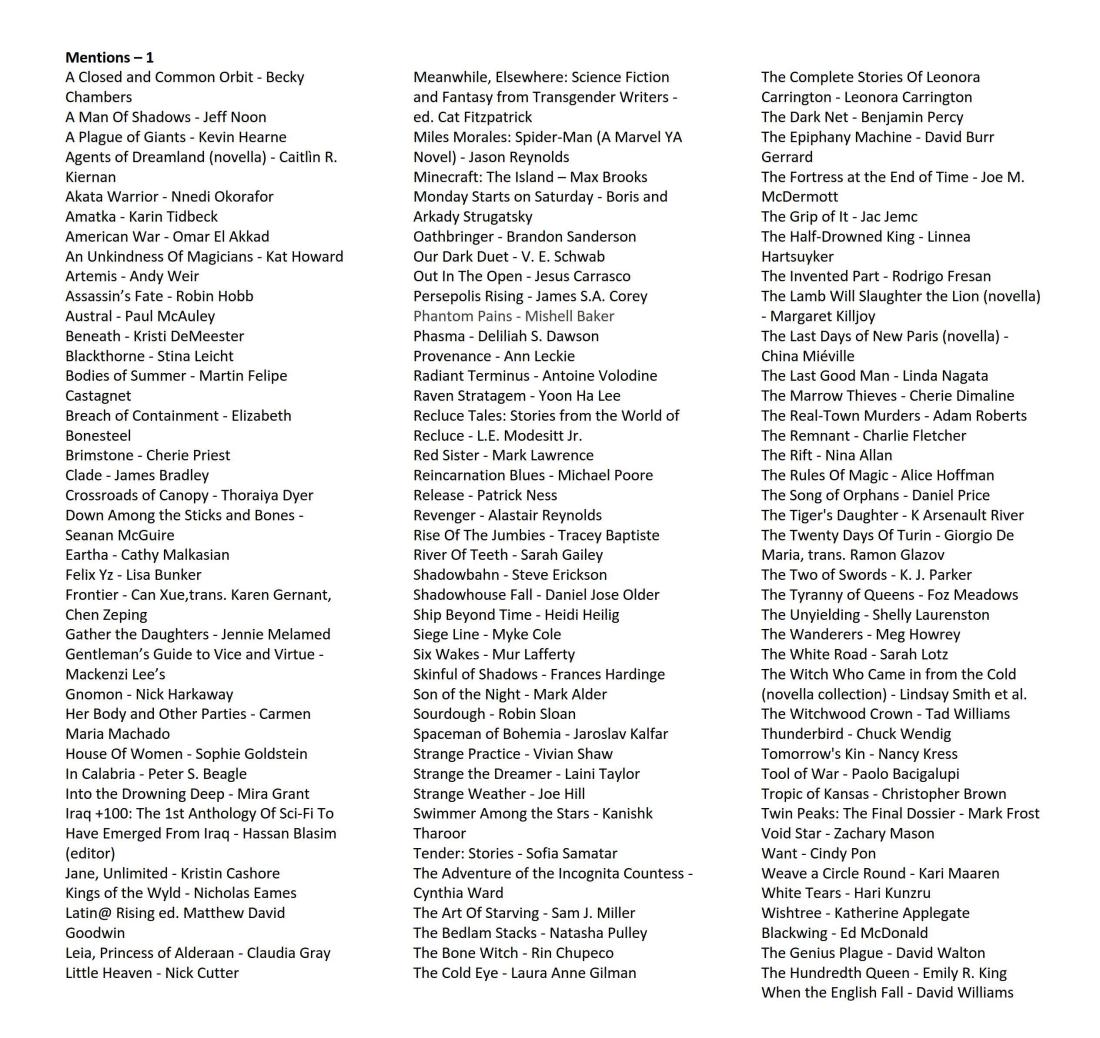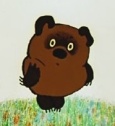Now that Dragon Con is over and our schedules have returned to normal, it seems like it’s time to explain why the Red Panda Fraction decided to create a slate for the Dragon Awards this year. It was the most controversial thing we did, and we noted the consternation among blog commenters. We appreciate the criticism that authors may not want to be on any slate because it would make them “political footballs” or put targets on their backs. If we create a recommendation list for the next Dragon Award, we will ask authors if they want to be taken off before sending anything out to the public.
The first thing we want to point out is that the Dragon Awards and Dragon Con itself are very different from the Hugos and Worldcon. Only one of us Pandas has attended Worldcon or voted for anything in the Hugo Awards. The Red Panda Fraction organized in response to the Puppy activism around Dragon Con, which is for most of us our home convention.
The Hugos are long-time literary awards that have a legacy worth protecting and preserving. They are awards for literature and nonfiction writing, and the voting process is set up to facilitate reading of the nominees. The Hugos are well-known awards that do not need publicity to get the membership of Worldcon to be aware that they exist. In fact, the Hugos are central to the activities of Worldcon as a whole. We have not and would not create slates for the Hugo awards. So what is it about the Dragon Awards that led to our decision to fight fire with fire or slate with slate?
We’ve seen a few internet comments indicating that it’s fine to let the Puppies have their Dragon Award as long as they leave the Hugos alone. We don’t agree; something more than literary value is at stake here. Dragon Con is a 70,000+ person convention which we enjoy, and we feel that the Dragon Awards should be representative of DC’s members (people who pay to attend DC). As we have read their blogs over the past three years, we do not see the Puppies as fighting for some “popular” literature that “real” fans like, so much as they are increasingly using awards to promote right-wing propaganda tracts through the networks of SF/F fandom. At the very least, we would prefer not to have our local convention turned into an alt-right recruiting ground, nor do we think it is good to allow authors to use the name of Dragon Con in order to claim that the “real fans” agree with their abhorrent political agenda.
Based on our observations, both in person and online, we believe the Dragon Awards were created by friends of Puppy factions within the Dragon Con administration as a “Puppy Participation Trophy.” Outside observers who are more familiar with the Hugo Awards may not quite understand how disconnected these awards are from the vast majority of Dragon Con’s membership.
For example, in 2016, the first press release appeared on Dragon Con’s website on April 4th. No notice went out to Dragon Con’s general members. Perhaps this was just growing pains for a new award, and we should not ascribe to malice what can be plainly explained by incompetence. However, whatever the intention of the Awards’ organizers, it is apparent that most members of Dragon Con continue to be unaware that the awards exist and do not seem to care about them. We know this from informally polling people at Dragon Con, whose most common response to the question “What do you think about the Dragon Awards?” has been “What are those?” We can also tell from the paltry attendance at the awards ceremonies, which we documented in 2017, as well as from regular reading of Dragon Con related social media. Leading up to the 2017 final voting period, the only people we saw posting about the Dragon Awards on the very high volume Dragon Con official Facebook page or tweeting about the Dragon Awards were nominated authors who were also members of organized right-wing groups.
Moreover, from the beginning, the most active boosters of the award have been Puppies. Among the first places to publish a story about the Dragon Awards (April 8th, 2016) was the Conservative-Libertarian Fiction Alliance (CLFA), a closed Facebook group which includes a number of major Puppy organizers. It didn’t take much digging for us to figure out that Dragon Con’s SF=literature track director, Sue Phillips, and long-time SF-lit track volunteer, the Puppy-booster blogger and podcaster, Stephanie Souders, (aka “The Right Geek”, who added Phillips to the FB group in 2014) were also members of the CLFA Facebook group. The CLFA actively promotes the work of their members on their blog. See, for example, this post from this year.
Puppy Declan Finn (a member of CLFA and Facebook “friends” with Phillips and connected through the conservative Catholic geek-sphere to Souders, who’s been on his podcast), started blogging about the Dragons a few days after the April 2016 press release, celebrating the awards as a Hugo Killer, dooming the Hugos to eventual obscurity. He had this to say on April 7th:
“The funny thing is that this isn’t the first time I’ve heard about it. My fellow Puppies have been anticipating, batting around, and daydreaming about the idea for the last year and a half.”
He also linked to Brad Torgerson’s public Facebook discussion of the new award:
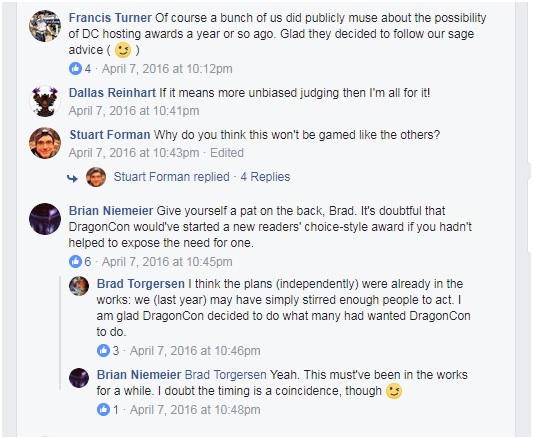
It’s not entirely clear to us, because the process and the players are unknown, just how much overlap there is between the SF-literature track and the original award organizers, but given the above, it would make sense that the SF-literature track at Dragon Con would be a center of discussion of the Hugo kerfuffle. It is clear, however, that the Puppies knew about the Dragon Awards well before they were announced to the general membership and likely played a role in the Dragon Awards’ genesis. We also observed, as noted on File 770 that the 2016 Dragon Awards’ administrators, David Cody and Bill Fawcett had been posting on Larry Correia’s website soliciting nominations in the summer of 2016, despite the fact that they had still not publicized the wards to the Dragon Con membership at large. We didn’t notice them circulating similar exhortations to fans of other potential nominees. So from the beginning, these awards appeared to have been created to give the Puppies a significant head start.
So, whether it was their intention or not, the Dragon Awards dragged the 70,000+ paying members of the convention into the Puppies’ culture war against feminism, diversity, and the left within SF/F fandom. Dragon Con president Pat Henry used the language of the right, describing “justice warriors” efforts to affect the 2017 voting in the award, in his response to Alison Littlewood’s attempt to withdraw her name from the nominations. While some critics speculate that maybe Henry was responding to the fact that we Red Pandas had a shared a list of recommended nominations that even our own small group did not adhere to (because Pandas are unruly with no masters) – we now think in light of the admitted numbers of voters it much more likely that the language about “Justice Warriors” is connected to the general Puppy discourse about Evil SJWs and perhaps betrayed his unease over how the voting was going.
While the award organizers proudly proclaimed upon creating the awards that they were being democratic by not barring voting from non-members, they acted in profoundly undemocratic ways by deliberately promoting some authors and publicizing the existence of the Awards only in certain venues that were sympathetic to these authors. The result was that in the first year, the Awards were essentially a Puppy in Dragon’s clothing in the major literature categories. We refer you to Camestros Felapton’s breakdown here.
Contrary to what the Puppies insist, this does not somehow mean that Dragon Con’s then 70,000 members just preferred those works to others, for we now know that the number of total ballots cast was somewhere below 4000 in the first year, which we live-Tweeted during the 2017 Dragon Awards ceremony, and these numbers included an unknown number of politically active slate-voters. Since Dragon Con has not attached this award to membership in the convention, it does not make sense for the Puppies to claim that the award represents “the convention” as a whole. The belated notification of the Dragon Awards to members through the Dragon Con app in 2017 was a welcome effort, although probably too late, to make the process more democratic by simply informing Dragon Con members there was such a thing as the Dragon Awards.
Therefore, our basic understanding of how the Dragon Awards voting processes worked and our awareness of an existing set of right-wing slates suggested to us in 2017 that the only way to get non-Puppy works on the ballot and to keep the 2017 awards from becoming another alt-right publicity stunt was to create a slate and fight fire with fire. With no idea of how many people voted, we speculated that a relatively small number of people could change the outcome of the Awards so we created a discussion group, talked about potential nominees, and finally put together a slate. The Puppies established these norms themselves, so we did not think that there was a legitimate way for them to complain about us advocating as fans for the works we like without suggesting that there was something wrong about what they themselves were doing. Finally, unlike the Puppies, none of us are writers promoting our own work. We are actually fans voting for the works we like, with no personal connections to any of the authors or publishers.
We were pleasantly surprised to see that enough fans voted this year that the winning books of 2017 were not simply the result of organized campaigns by Puppies, nor it seems, us. We now think that increased participation gave results that more or less reflected the choices of a large group of fans rather than any small segment, which is moving towards the STATED goal of the Dragon Awards in their section “The Process” on their website:
“Have you ever wanted to tell fellow fans when you’ve read a great new book or comic, play an awesome new game, or see an exhilarating movie? The Dragon Awards are your chance to share your opinions with, and see the recommendations of, tens of thousands of other fans everywhere!”
If the Dragon Awards end up with winners actually based on the voting of “tens of thousands” of fans, then like this year, we’d be content with most winners. If the nomination voting also had those kind of numbers of fans participating, then we expect we’d see results more like the end of year awards on Goodreads. Since our main activity was privately encouraging people to vote in a number of venues, we’d like to think that we were part of that.
Rad Sonja
